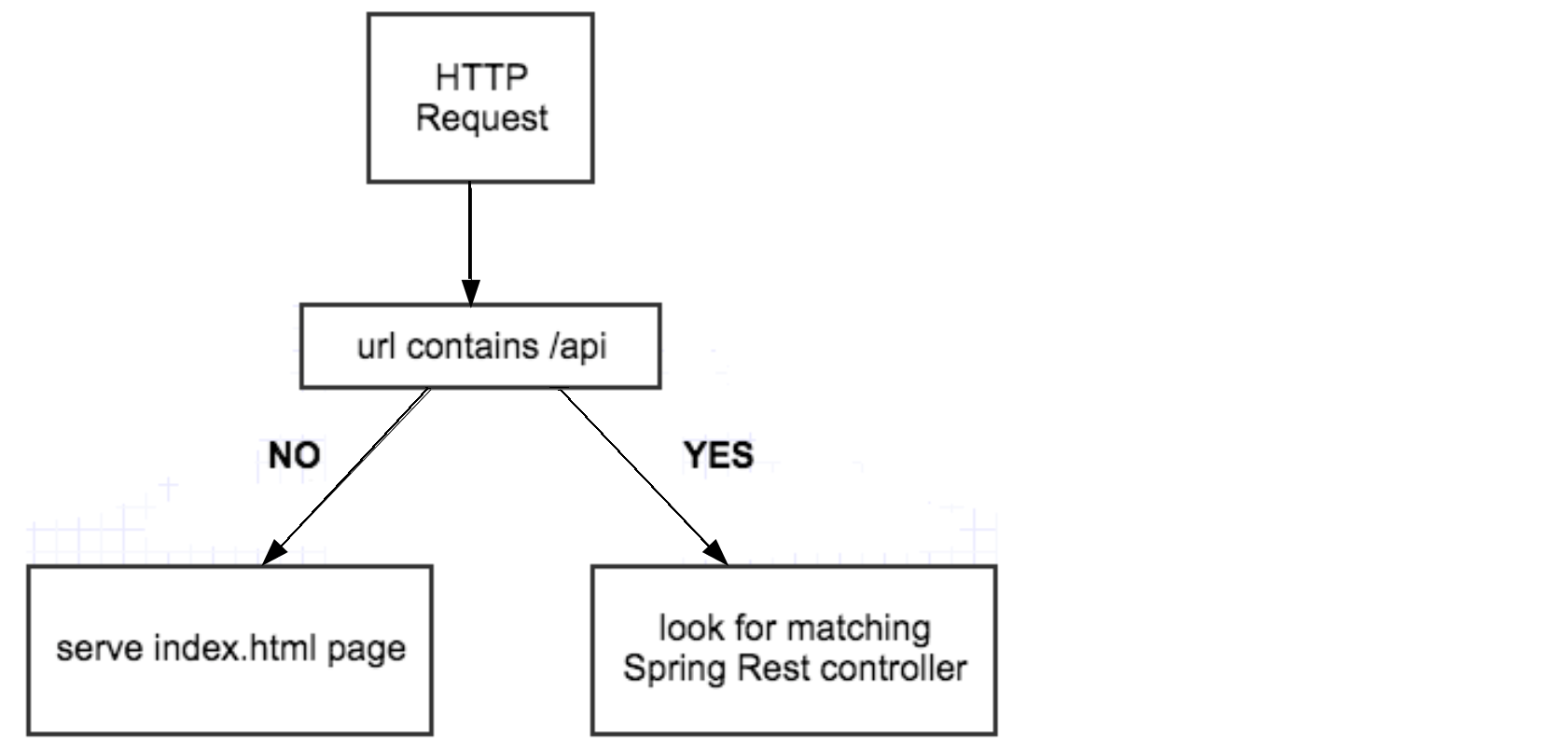For every local REST request not starting with /api overwrite and redirect to default webapp/index.html. I plan to serve anything /api to the spring controllers.
Update 15/05/2017
Let me re-phrase your query for other readers. (Correct me, if misunderstood)
Background
Using Spring Boot and Serving static resources from classpath
Requirement
All 404 non api requests should be redirected to index.html.
NON API - means Requests in which URL doesn't start with /api.
API - 404 should throw 404 as usual.
Sample Response
/api/something - will throw 404
/index.html - will server index.html
/something - will redirect to index.html
My Solution
Let the Spring MVC throw exceptions, if any handler is not available for the given resource.
Add following to application.properties
spring.mvc.throw-exception-if-no-handler-found=true
spring.resources.add-mappings=false
Add a ControllerAdvice as follows
@ControllerAdvice
public class RedirectOnResourceNotFoundException {
@ExceptionHandler(value = NoHandlerFoundException.class)
public Object handleStaticResourceNotFound(final NoHandlerFoundException ex, HttpServletRequest req, RedirectAttributes redirectAttributes) {
if (req.getRequestURI().startsWith("/api"))
return this.getApiResourceNotFoundBody(ex, req);
else {
redirectAttributes.addFlashAttribute("errorMessage", "My Custom error message");
return "redirect:/index.html";
}
}
private ResponseEntity<String> getApiResourceNotFoundBody(NoHandlerFoundException ex, HttpServletRequest req) {
return new ResponseEntity<>("Not Found !!", HttpStatus.NOT_FOUND);
}
}
You can customize the error message as you like.
Is there a way to prefix all controllers with api so that I do not have to write api every time.
For this, you can create a BaseController and set the RequestMapping path to /api
Example
import org.springframework.web.bind.annotation.RequestMapping;
import org.springframework.web.bind.annotation.RestController;
@RequestMapping("/api")
public abstract class BaseController {}
And extend this BaseController and make sure you do not annotate child class with @RequestMapping
import org.springframework.web.bind.annotation.RequestMapping;
import org.springframework.web.bind.annotation.RestController;
@RestController
public class FirstTestController extends BaseController {
@RequestMapping(path = "/something")
public String sayHello() {
return "Hello World !!";
}
}
Previous Answer
You can create a Filter which redirects to /index.html if request path doesn't startsWith /api.
// CODE REMOVED. Check Edit History If you want.


@RequestMapping("/api")and apply that to your api controllers. Then use@RequestMappingon methods for specific urls. – Tiffie